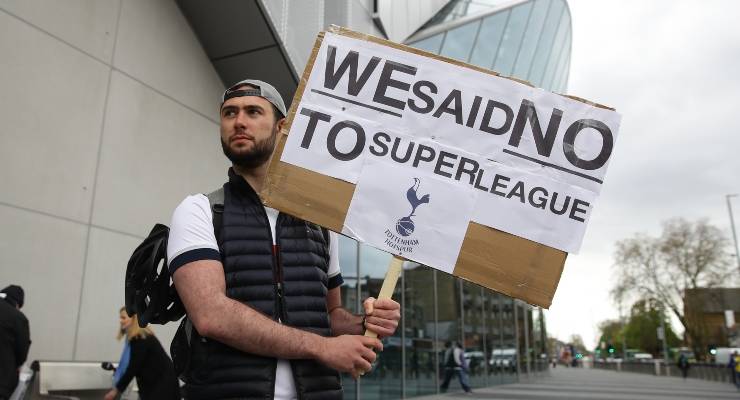
This week, to just about everyone’s surprise, 12 of the world’s powerful billionaires were told: “No”. Even more surprising, the nay-sayer was the notorious world soccer body, FIFA, with the support of Britain’s conservative government.
The sudden collapse of the proposed European Super League was great news for both the football community and for supporters of people power. But the rich are different: they don’t lightly take no for an answer.
The furore over the proposed billionaire-controlled league touched two of the big fault lines in modern sport. One, social: the conflict between the sport’s community — fans, amateur players and the network of local clubs — and the billionaires who own the big teams; the other, institutional: the growing power of professional clubs at the expense of the leagues that, ostensibly, control them.
Those conflicts have been brought to a head as professional sport (like all media and entertainment sectors) is disrupted by the shifts in the attention economy — greater audience choice (with the same amount of personal time to spend on those choices), the shift in advertising and sponsorship dollars to tech platforms, and the declining value in inflated broadcast rights.
The billionaire’s response to disruption? Controlled oligopoly.
On its face, what happened this week was simple: 12 of the largest clubs (six in England, three in Spain and three in Italy) announced late on Sunday night that they were setting up their own Europe-wide competition (with eight other big teams to be announced later) to replace the current European Championship run by FIFA’s European arm, UEFA.
The difference? Rather than having to qualify through success in their domestic leagues each year (which, in any case, the 12 usually do), the big clubs would be automatically included, both diminishing the domestic competitions and, through their guaranteed European share of the new league’s revenues, give them an edge to block new clubs emerging.
After a revolt by fans of the English teams (joined by British Prime Minister Boris Johnson), a threat by FIFA to kick the clubs out of the domestic leagues and bar their players from the World Cup, and the refusal of the big German and French teams to join in, the proposal was abandoned on Wednesday morning Australia time. (It seems German clubs, governed by a 50+1 rule that mandates a member voting majority, remain driven by more traditional imperatives.)
Lucrative portfolios
The six English teams are all owned by billionaires from outside Europe, often as part of sport portfolios: four from the US and one each from Russia and the United Arab Emirates. They are part reputation rehabilitation, part access to the UK, part business.
Their business model is being disrupted by competition from new owners, with just about every club in the English Premier League having their own billionaire backer, driving cost inflation, mainly in player salaries. The result? A club can be profitable or it can top the league. But it can’t be both.
The big clubs in Europe are also unhappy about effectively being required to fund their own competition. Broadcast audiences skew heavily to the leading clubs — the six English clubs involved have 85% of non-English fans: Liverpool are the most popular club in Australia, Manchester United in India, Arsenal in the US. But broadcast revenues are split up across all clubs.
Shutting the door on other clubs in their own super league would guarantee their cut of European broadcasting rights and reduce competition for the best (and most expensive) players.
The Australian football codes have some of the same tensions. In soccer, Sydney FC was owned by the Lowy billionaires before being bought by obscure Russian businessman David Traktovenko, while Melbourne City, along with Manchester City, is part of the portfolio of the UAE’s Sheikh Mansour.
After dabbling with private ownership in the 1980s (remember celebrity plastic surgeon Geoffrey Edelsten and the Sydney Swans?), the AFL has wisely avoided private ownership. The NRL not so much, with the Brisbane Broncos majority-owned by Delaware-based News Corp and its controlling billionaire family.
Australian sport — cricket in the 1970s and rugby league in the 1990s — has already seen what happens when billionaires get unhappy. Expect another billionaire-driven global shake-up in the world of sport.








Crikey is committed to hosting lively discussions. Help us keep the conversation useful, interesting and welcoming. We aim to publish comments quickly in the interest of promoting robust conversation, but we’re a small team and we deploy filters to protect against legal risk. Occasionally your comment may be held up while we review, but we’re working as fast as we can to keep the conversation rolling.
The Crikey comment section is members-only content. Please subscribe to leave a comment.
The Crikey comment section is members-only content. Please login to leave a comment.